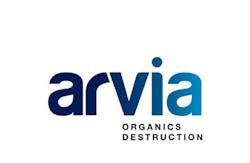Funding secured for new industrial wastewater treatment process
A U.K.-based water and wastewater treatment company is launching a series of demonstration installations in industrial treatment facilities after securing £4 million ($6 million) in a new round of investment funding.
Arvia Technology has developed an innovative wastewater treatment process based on its own graphene-based proprietary material, called Nyex. This material is claimed to remove organics, emerging contaminants and micro-pollutants from wastewater and is regenerated in-situ in the novel organics destruction cell (ODC) process.
The technology was spun out of Manchester University's School of Chemical Engineering.
According to Arvia, its modular treatment units can remove and oxidize low, trace toxic and problematic pollutants at source. These include endocrine-disrupting and other chemicals used in the pharmaceutical industry and personal care products, such as triclosan, as well as metaldehyde, which is used by farmers in slug pest control.
The units can be configured with the appropriate number of ODCs based on organics concentrations in a given waste stream.
Commenting on the latest round of funding, Arvia's chief executive Mike Lodge said that the company now has the secure financial backing necessary to launch its "game-changing products" in the water sector.
"We have numerous test units to deploy into the market and we are looking for early adopters to collaborate with Arvia in applying this technology, which is changing the boundaries of how water is treated," he added.
Arvia is currently identifying companies in the industrial, pharmaceutical, herbicide and chemical sectors with problematic wastes. It said that the field trial units can treat organics concentrations as low as 1 part per billion (ppb) and flow of up to 2 cubic meters per hour.
